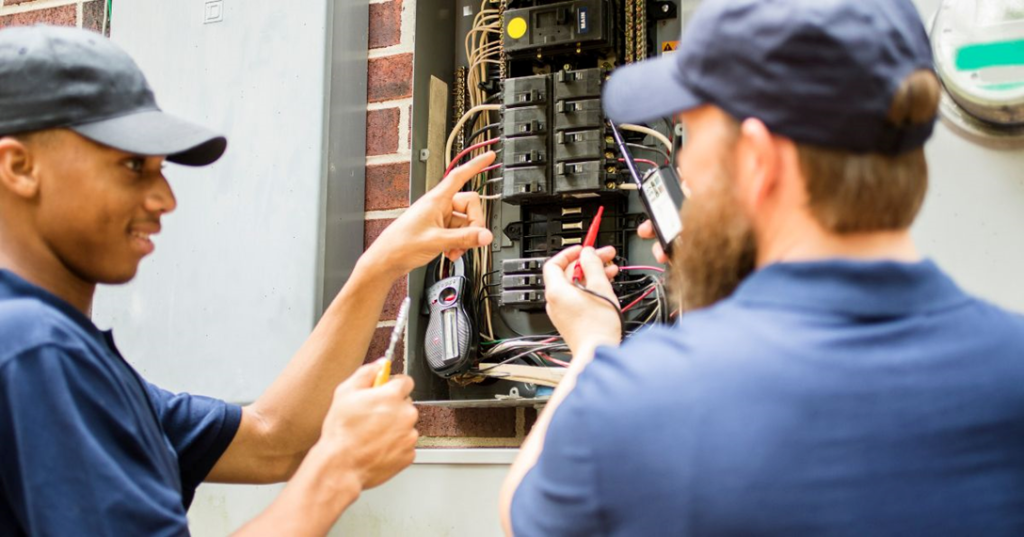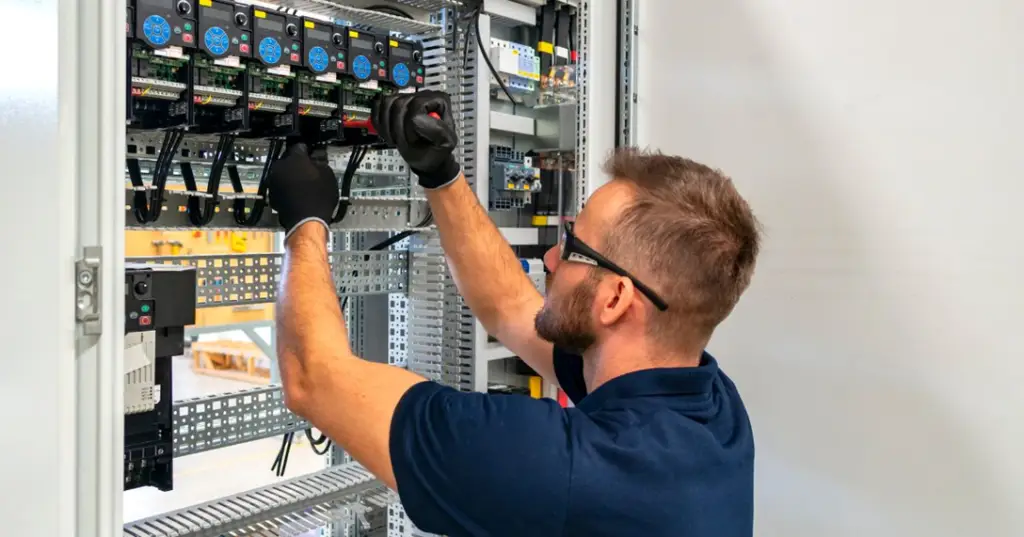Are Electricians Contractors? Understanding the Difference and Overlap.

Are electricians contractors? Learn the differences, similarities, and roles in the electrical trade to know who to hire for your next project.
When you need electrical work done, you might wonder: Are electricians contractors? You can see why the terms are used interchangeably.
Both responsibilities involve electrical systems, tools, safety regulations, and frequently a gear-carrying truck.
Even though electricians and electrical contractors have many similarities, they are not the same.
Getting help from an electrician in Vancouver can save you time, money, and a lot of confusion.
In this guide, you’ll learn about the responsibilities of an electrician and their interdependence with contractors.
Our discussion will include the topics of training, licensing, and when to hire one. At last, choose the electrician for your electrical project.
What Is an Electrician?
A skilled tradesperson known as an electrician is trained in the installation, maintenance, and repair of electrical equipment.
The tasks involve wiring homes, upgrading breaker panels, troubleshooting malfunctioning outlets, and ensuring safety measures.
Electricians are typically hands-on and perform the physical labor of electrical work.
Types of Electricians.
- Residential electricians: Their responsibility is to manage home electrical wiring, lighting, and outlets.
- Commercial electricians: Offices, stores, and other business premises are where these experts work.
- Industrial electricians: Their expertise lies in manufacturing, assembly, and extensive machinery.
- Maintenance electricians: Their primary concern is the maintenance of systems and preventing malfunctions.
While most electricians work under a contractor, some operate independently, depending on their license and experience.
What Is an Electrical Contractor?
An individual or business that employs electricians to execute electrical work is known as an electrical contractor.
An electrical contractor oversees the physical operation of the wires, while a contractor typically handles the larger scope of work, such as permits, safety regulations, budgeting, and project planning.
If you’re building a new home, the contractor should make sure everything is legal, organized, and completed on schedule.
The electricians are the ones who connect switches, wires, and electrical installations.
Key Differences Between Electricians and Contractors
Electricians and contractors are often paired, but their duties vary.
Electrician.
- Skilled tradesperson.
- Installs and repairs wiring.
- Performs tasks independently or through a contractor.
- Requires certification and apprenticeship.
Contractor.
- Business or company owner.
- Manages projects, permits, and hiring.
- Employ electrical workers to perform hands-on tasks.
- Requires a business license and insurance.
Training and Licensing.
One of the primary differences between an electrician and a contractor is in their training programs.
· Electricians.
Typically, individuals undergo an apprenticeship that can last up to 5 years.
Both classroom instruction and hands-on experience are used by them. Upon passing the exams, they progress from being apprentices to skilled electricians.
· Contractors.
The presence of an electrician is not always a given.
The proper business licensing, insurance, and contractor’s license are prerequisites for a contractor to operate.
It is their duty to ensure compliance with electrical codes and building regulations.

Are All Electricians Contractors?
No, contractors who have experience in electrical engineering are not considered contractors.
Without ever becoming a contractor, an electrician can spend most of their career working on job sites.
On the flip side, a contractor frequently shifts their attention from daily wiring to management and business operations.
When to Hire an Electrician vs. a Contractor
Your project determines who to hire.
Hire an Electrician When:
- Fix a damaged outlet.
- A breaker keeps tripping.
- Would you like to have a ceiling fan or a light fixture installed?
- Your home needs rewiring.
Hire a Contractor When:
- You’re constructing a new dwelling.
- Commercial property electrical work is necessary.
- A significant renovation requires permits and inspections.
- An increase in the number of electricians is needed for a larger project.
The Values of Licensing and Safety.
You shouldn’t underestimate the importance of electricity.
Choosing to hire the wrong person can pose safety risks, fire hazards, and costly repair bills.
So, it’s essential to get licensing. A certified electrician has completed exams, worked thousands of hours, and is a reliable worker.
A licensed contractor ensures compliance with building codes and maintains liability insurance.
Whenever uncertain, ensure that you are in the proper state for hiring.
What is the Overlap Between the Two Roles?
Contractors and electricians are two distinct but complementary professions.
Electrical workers bring technical expertise, but contractors provide structure and supervision.
Both are necessary for many projects.
A contractor may be hired to design the electrical system, apply for permits, and manage scheduling for a new commercial building.
After the contractor assigns electrical workers to conduct wiring, outlet installation, and system testing, it will proceed.
One of them won’t work, the other will. Imagine you’re remodeling a kitchen. You are looking for new lighting, outlets for your appliances, and safer wiring.
- When you call an electrician, they can install lights and outlets for you.
- By phoning an electrical contractor, they will manage permits, ensure compliance with codes, and potentially partner with other trades like plumbers or carpenters.
The importance of either depends on the size of your project.
Cost Considerations.
Another key difference is cost.
Electricians usually charge hourly or at fixed rates, depending on the type of job.
Including overhead, management, insurance, and subcontractor costs in their charges may cause higher fees for contractors.
Even though hiring a contractor may seem costly initially, it can save money in the long run because of the absence of mistakes, delays, or fines for non-compliance with building regulations.
Responsibilities and Duties.
The roles and responsibilities of electrical contractors and electricians are not uniform. Let’s look!
- Electrical system installation, repair, and maintenance are their responsibilities. The job involves inspecting wiring, outlets, and circuits for safety.
- Audits are conducted to detect any shortcomings. Their quick diagnosis and fix are excellent.
- Keeping abreast of safety regulations and codes is essential. This guarantees secure electrical setups.
They offer advice to clients. They suggest energy-efficient appliances and lighting that are also affordable.

Conclusion.
So, are electricians contractors? Not always.
Electrical workers perform technical duties, while contractors oversee projects and businesses. Specific individuals wear both hats, but they’re separate endeavors.
If you need electrical work the next time, think about the magnitude of your project. For a minor repair, seek the help of an electrician.
Engage a contractor to undertake significant construction work. It’s vital to verify licensing, experience, and references before deciding.
The comprehension of this distinction not only saves money but also guarantees your project’s safety, efficiency, and proper execution.


